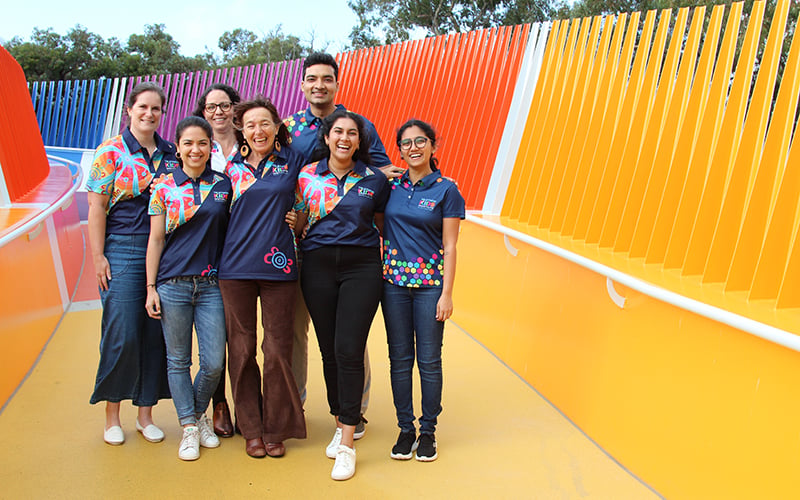
In celebration of World Breastfeeding Week (1 – 7 August), we sat down with Professor Valerie Verhasselt - Head of the Immunology and Breastfeeding Team at The Kids Research Institute Australia and Professor at the University of Western Australia, to ask her some of the top questions about breastfeeding, immunology and the team’s current research projects.
Q: What research is your team currently undertaking at the Institute?
The Kids Research Institute Australia Immunology and Breastfeeding team are seeking to understand the magic of breastfeeding and how it can help ensure children have a happy, healthy start to life. The main topics of research that we are currently covering include:
- What components of breastmilk are specifically adapted to prevent allergy in children? How to increase the presence of these anti-allergy compounds? This is important to provide guidance for mothers who are breastfeeding and do not know what to do to prevent allergies in their child.
- What is so special with colostrum, the very first milk? How does it change a child’s health years later? This knowledge is currently lacking and is needed to improve colostrum intake during hospital stay.
- Could breastmilk assist in preventing Malaria, the most severe public health problem worldwide? Our team explores a potential game changer in the field of vaccination – research providing evidence that breastfeeding may be a natural, and very efficient, way to vaccinate children and protect them from infectious disease, including Malaria.
Q: Why is breastfeeding important for both mother and baby? How will it change the health of a child?
Yes, breastfeeding is good for both the mother and the baby.
One of the major benefits of breastfeeding is the reduced risk of uterus and breast cancer in mothers. Not only are there are number of other associated health impacts, breastfeeding can also help mothers foster a strong connection with their babies in the early days of life.
For children, increasing rates of breastfeeding, and doing so in exclusivity, could help save 1 million children every year. Breastfeeding provides child tailored protection from infectious disease, is the adapted source of nutrients and prevents obesity. There’s also interesting research into the link between brain function and breastfeeding, meaning your child could be smarter!
Q: What is the link between breastfeeding and allergies in children?
Unfortunately, breastmilk does not help protect the child from allergy. Our team are currently exploring how maternal lifestyle can work to change breastmilk composition and increase its anti-allergenic properties.
Q: What do we know about breastfeeding and immunology?
There’s a lot we do know in this space but still so many areas that need to be explored.
It has been known for a long time that breastmilk is the most effective way to help a baby’s developing immune system. Through breastfeeding, babies are able to receive antibodies that specifically target microbes in a child environment as well as multiple anti-microbial molecules. This works to prevent infection in breast-fed children.
There is far less known about how breastmilk educates the baby’s immune system and helps it be ready to face external world when the child is weaned (i.e. being able to fight pathogens while accepting allergens). This is a fascinating field of research where my team is specialised. With this knowledge, we can promote child and adult health through breastfeeding
Q: Are there benefits of breastfeeding on the planet?
Yes! There’s no plastic and no waste with breastfeeding.
Q: What research can we expect to see from the team in the future?
The team will be conducting further research on the prevention of disease in poor countries such as parasitic infection, which can prevent children to develop as they should and access education.
We will also be undertaking more research on colostrum - the first form of breastmilk that is released by the mammary glands after giving birth – and how this can help fight the current epidemics of allergy and obesity.
To find out more about the Breastfeeding and Immunology team, visit the team page here.
